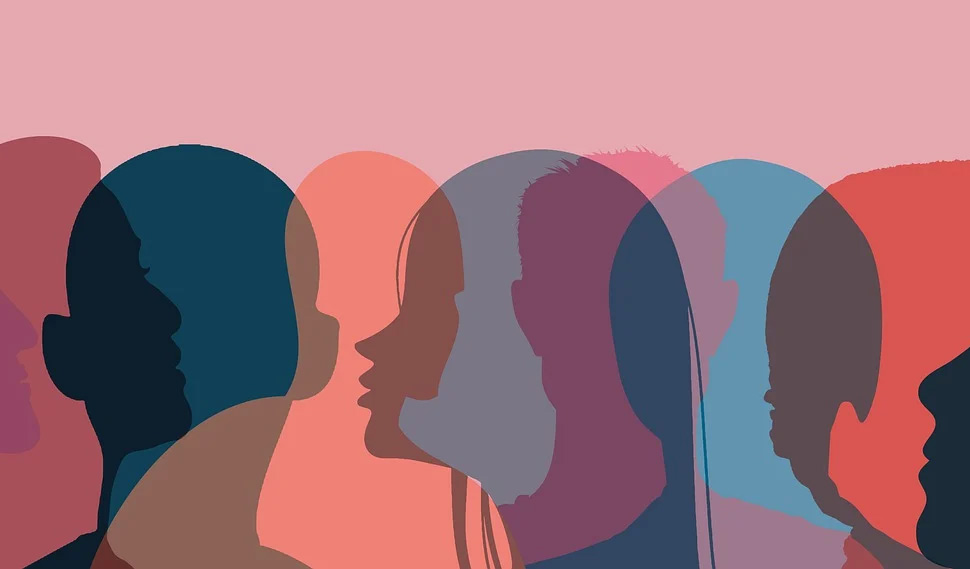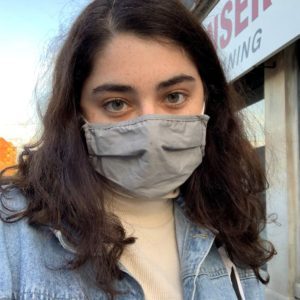This past December, activists and educators from across the Jewish world gathered virtually for “New Perspectives on Jewish Youth Hookup Culture,” a panel event hosted by New Voices Magazine, Lilith Magazine, and the Jewish Women’s Archive. Panelists from three Jewish organizations spoke extensively on institutional and cultural flaws that exist within Jewish youth spaces, and the action required to promote equity and inclusion in the future.
The featured panelists included Drew Fidler, the director of the BBYO Center for Adolescent Wellness, Rachel Faulkner, Directory of Community Investments at the Safety, Respect, and Equity (SRE) Network, and Ellanora Lerner, co-founder of Jewish Teens for Empowered Consent (JTEC). Everyone who spoke on the panel is a dedicated activist and prominent voice in the ongoing conversation on issues of consent and sexuality in the Jewish world. I moderated the event as the Jewish Media Fellow for New Voices Magazine and Lilith Magazine, alongside Rena Yehuda Newman, Editor in Chief of New Voices Magazine. Attendees from across North America tuned in, including representatives from synagogues, youth group members, and more.
“New Perspectives on Jewish Youth Hookup Culture” happened in the midst of a broad reckoning with sexual misconduct within Jewish spaces. The last several months have seen increased attention on Jewish institutions that have announced third-party legal investigations into misconduct, including the Union for Reform Judaism, Hebrew Union College, and others. In many of these investigations, denominational institutions have made requests for survivors to come forward and provide testimony. A call for personal stories signifies an important shift in the role of survivors in this ongoing conversation; new organizations like Jewish Teens for Empowered Consent (JTEC) provide an online platform for people to discuss rape culture in Jewish youth groups and camps, connecting survivors with a community. Testimony like this, featured on the JTEC Instagram, highlights the truth of what teens face in Jewish youth groups like NFTY, BBYO, and USY:
“You never think it will happen to you until it does…As I was walking to find an open space to dance, a boy walked up to me and grabbed my butt. I turned around to see who it was and what was happening and before my eyes he had grabbed my chest as well…I was shocked. And in that moment I felt disgusted with myself…[But this] wasn’t my fault. It was the organization’s fault for perpetuating such a stigma that if you don’t hook up with someone, you’re a prude. It’s the organization’s fault for not creating an environment that makes teens feel comfortable to talk about their encounters or assaults.” – BBYO, Class of 2022
Many of the teens and adults who have anonymously shared testimony with JTEC express an appreciation for the chance to tell their stories, a gratitude that exposes the culture of shame, stigma, and ignorance that is perpetrated within Jewish youth spaces. Rather than being given the tools to speak openly about experiences with harassment at the organizations within which they occur, survivors and their stories are often repressed. This panel reaffirmed the necessity of external organizations and communities that provide support beyond institutional frameworks. Within institutional frameworks, however, actions like today’s investigations can lay the important legal groundwork needed to make our goals a reality.
“Change cannot happen in the shadows,” said Ellanora Lerner of JTEC during the panel event, adding that accountability is the key to progress. Lerner went on to describe how listening to survivors of harassment is not only essential to understanding the problem, but also for forming solutions. “People can’t be expected to share [their stories] unless they feel safe and supported,” Lerner said, “and that’s difficult when the organizations asking you to share are the ones that harmed you in the first place.”
While JTEC is run by and works extensively with teen activists, organizations like the SRE Network train and educate adults on ways to build safe, respectful, and equitable spaces in the Jewish world. “We provide opportunities for organizations to create the standards they need in order to prevent harm from happening in the first place,” said Rachel Faulkner, “and checkpoints along the way to stop and say ‘what are we doing to address harm as it’s happening?’ or to be responsive in the moment instead of decades later.” The SRE Network also invests in the Jewish community through grant opportunities; recipients of their Fall 2021 Grants include New Voices Magazine and Lilith Magazine, two co-hosts of the panel, who hope to further this work through publishing the writings of survivors and those impacted most by issues of gender injustice in the Jewish world.
The conversation also focused on questions of culpability: when it comes to fixing the toxic hookup culture that exists in Jewish youth groups and summer camps, who is ultimately responsible, teen members or adult leaders? “Each group has ownership and responsibility, whether it is the organization, the staff, or the teens themselves,” said Drew Fidler of BBYO’s Center for Adolescent Wellness. She stated that increased education is necessary for everyone involved in Jewish youth spaces – teens should receive education on healthy relationships and boundaries, while adult volunteers, advisors, and administrators must have the training to respond to crisis situations when they arise. Adults and teens share a dual responsibility for creating community standards, and must work in tandem to create equitable and inclusive spaces.
“How do you listen, and respectfully deal with a challenge or issue? How do you create an environment that is safe, respectable, and equitable?” Fidler asked. Education is not the only answer to these questions; policy, open dialogue, and building a safe enough environment for open dialogue to happen, is essential. Fidler emphasized that conversations about toxic hookup culture should be encouraged among staff and youth, and teens should have the space to dismantle the negative elements of the culture they see. Lerner added that a top-down approach is only partially effective, as teens must play a relevant role in shifting cultural expectations and norms. Teens must have tools to approach adult leadership with ideas for programming and critiques about policies, and adults in these spaces should respect and value their contributions.
Intergenerational tensions exist in Jewish youth spaces, and the disconnect can become even more apparent through conversations about sexual ethics. In my work through JTEC, I have seen this generational disconnect firsthand. People of my generation, currently in their late teens and early twenties, brought up amidst the language and revelations of the #MeToo movement, often feel more comfortable speaking up about sexual harassment and cultures that condone it, while people of our parents’ generation might struggle to find the words to describe what was long a taboo topic. People like Fidler who advocate for individuals from different age groups do the important work of connecting people on different sides of this issue through education and conversation.
All three panelist organizations prioritize bringing more and more Jews into the discussion about fixing the toxic sexual culture in Jewish youth spaces.
Applying an intersectional lens to this conversation is important and often missing from these discussions. “The Jewish community thus far separates all of the [identities] out,” said Rachel Faulkner, emphasizing that for people holding multiple marginalized identities, it can be difficult to show up in white, heteronormative, and ableist Jewish spaces as a whole person. Promoting inclusivity through education and even language is a task the SRE Network takes into account. “The way that we try to change culture is race conscious and disability conscious,” said Faulkner, who is focused on “collecting the testimony of survivors who have yet to be heard, particularly survivors that have marginalized, intersecting identities.” Jewish youth group participants cannot be separated from their full identities, and the organizations represented on this panel are making strides to see the conversation around Jewish youth hookup culture more intersectional.
BBYO community training is becoming increasingly sensitive to LGBTQ+ identity: “As we train, we use examples from all different kinds of relationships, and then also we are training on not outing our teens. I think it’s important that our staff is trained that, if something happens and we need to get in touch with parents, how are we not outing our teens?” said Fidler on the topic. “It’s really important for teens to feel safe, and they need to know that this is a safe space where they can be themselves, whatever that self is or whatever that self looks like.”
The discussion on Jewish youth hookup culture is far from over. More Jewish organizers, organizations, and everyday people are getting involved in this conversation every month, and voices from both within and outside of Jewish institutions will matter as we move forward as a community with the goals of safety, respect, and equity in mind. Involving everyone in this conversation, especially youth leadership, is key to creating change.
To learn more about the history and context of toxic hookup culture in Jewish youth spaces, read Shira Wolkenfeld’s groundbreaking New Voices investigation here. To watch the recording of the “New Perspectives on Jewish Youth Hookup Culture” panel, click here.

